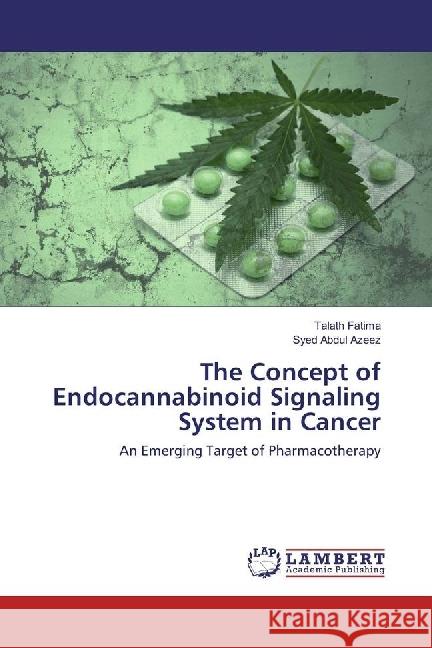The Concept of Endocannabinoid Signaling System in Cancer : An Emerging Target of Pharmacotherapy » książka
The Concept of Endocannabinoid Signaling System in Cancer : An Emerging Target of Pharmacotherapy
ISBN-13: 9783330026490 / Angielski / Miękka / 2016 / 80 str.
Endogenous arachidonic acid metabolites with properties similar to compounds of Cannabis sativa Linnaeus, the so-called Endocannabinoids, have effects on various types of cancer. The main active ingredient of cannabis, Delta9-tetrahydrocannabinol (Delta9-THC), produces its effects through activation of CB1 and CB2 receptors. CB1 receptors are expressed at high levels in the central nervous system (CNS), whereas CB2 receptors are concentrated predominantly, although not exclusively, in cells of the immune system. Although endocannabinoids and synthetic cannabinoids may have pro-proliferative effects, predominantly inhibitory effects on tumor growth, angiogenesis, migration and metastasis have been described. Exceptionally, these effects may be selective for the cancer cells, while normal cells and tissues are spared. Such apparent tumor cell selectivity makes the endocannabinoid system an attractive potential target for cancer therapy. Further basic research on anti-cancer properties of cannabinoids as well as clinical trials of cannabinoid therapeutic efficacy in breast, prostate and bone cancer is therefore warranted.











